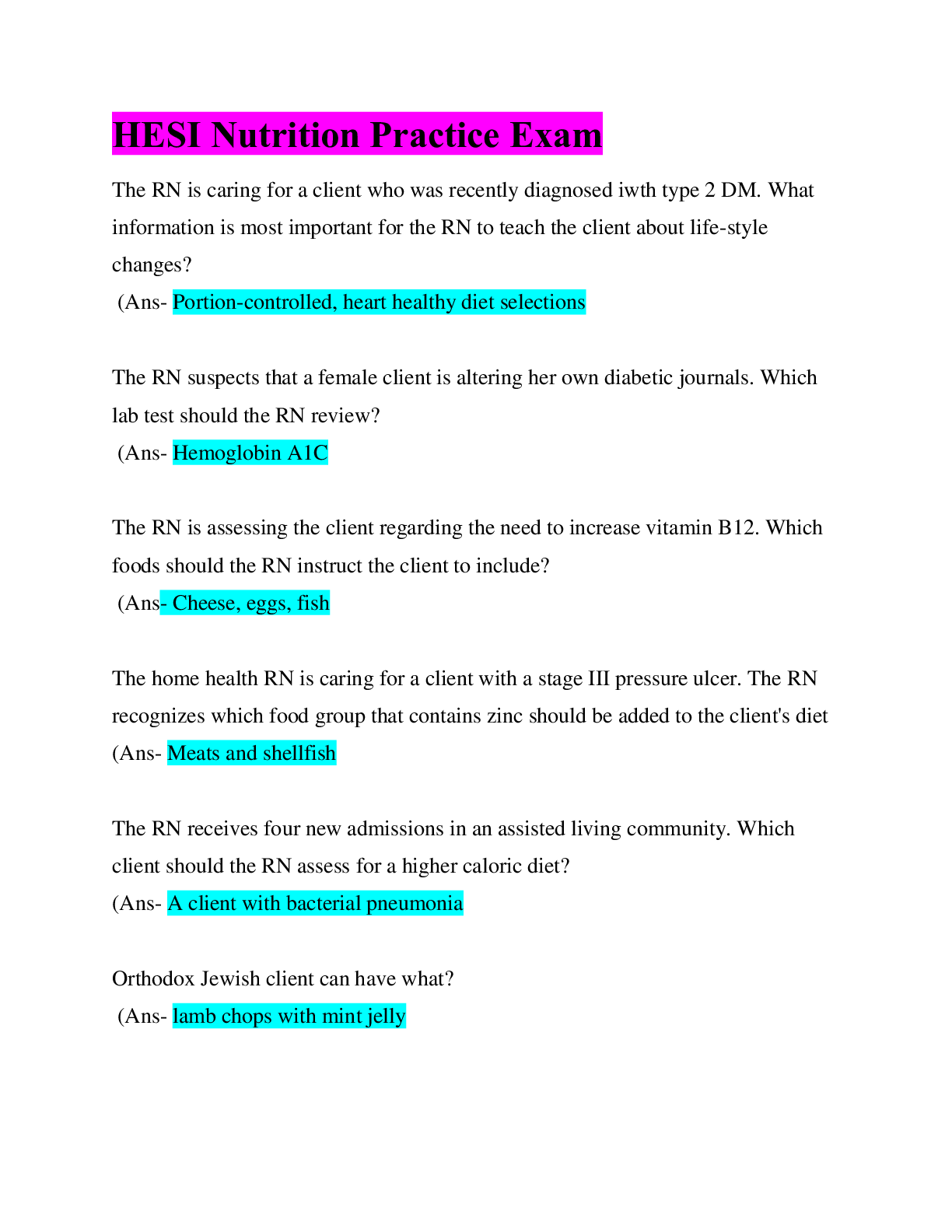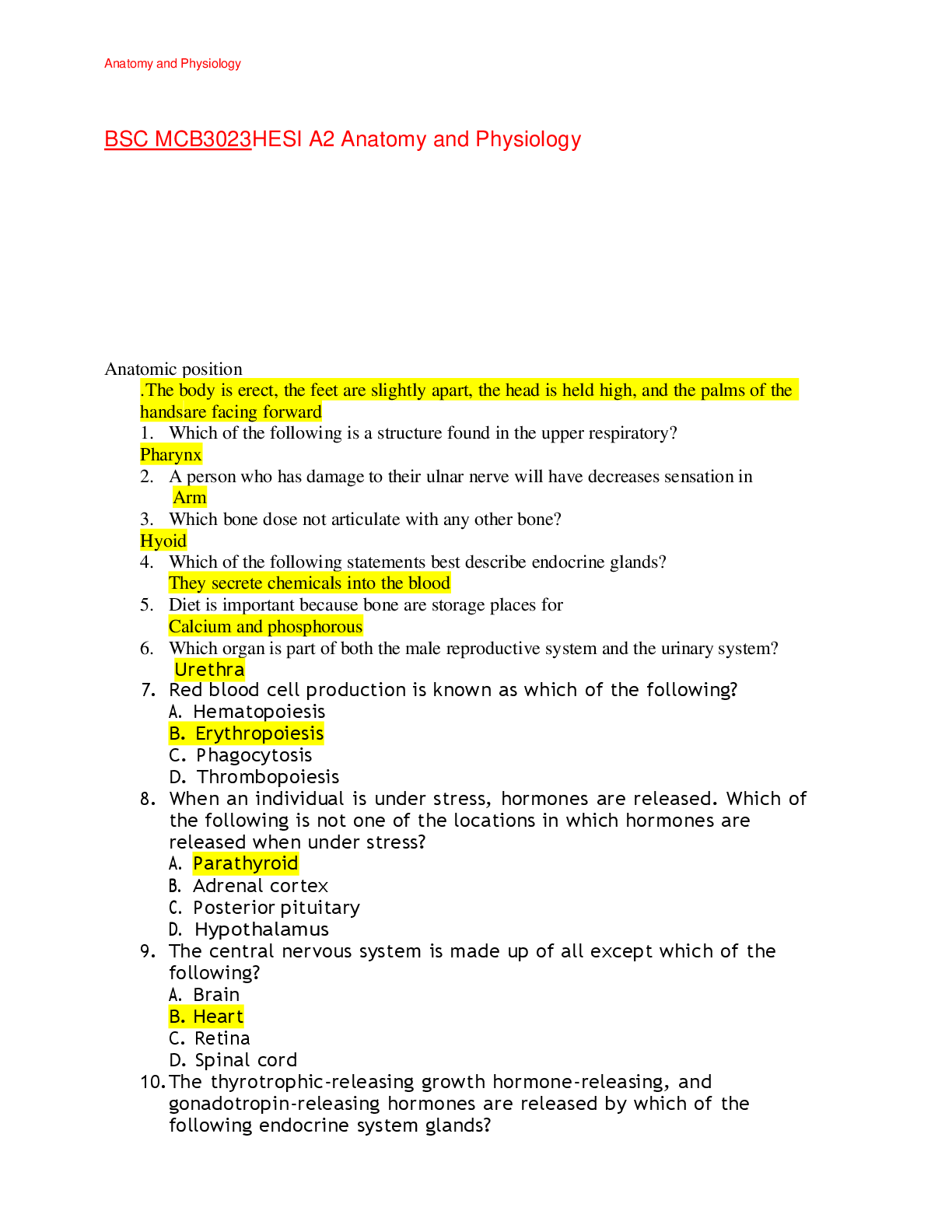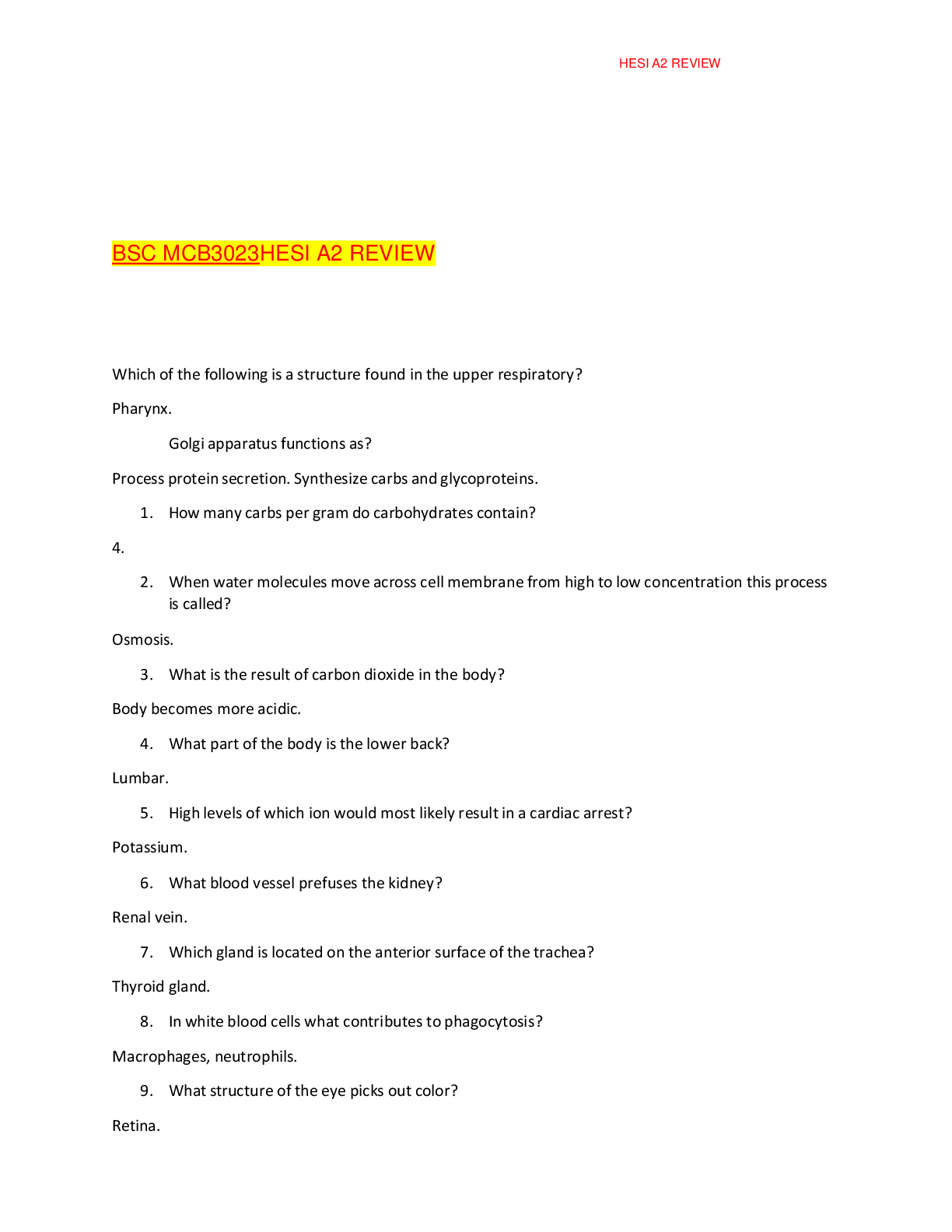Hesi Practice Test- Evolve. Questions and accuarate answers. Graded A+
Document Content and Description Below
The nurse is administering medications through a nasogastric tube (NGT) which is connected to suction. After ensuring correct tube placement, what action should the nurse take next? A. Clamp the tube ... for 20 minutes. B. Flush the tube with water. C. Administer the medications as prescribed. D. Crush the tablets and dissolve in sterile water. - The NGT should be flushed before, after and in between each medication administered (B). Once all medications are administered, the NGT should be clamped for 20 minutes (A). (C and D) may be implemented only after the tubing has been flushed. Correct Answer: B What is the most important reason for starting intravenous infusions in the upper extremities rather than the lower extremities of adults? A. It is more difficult to find a superficial vein in the feet and ankles. B. A decreased flow rate could result in the formation of a thrombosis. C. A cannulated extremity is more difficult to move when the leg or foot is used. D. Veins are located deep in the feet and ankles, resulting in a more painful procedure. - Venous return is usually better in the upper extremities. Cannulation of the veins in the lower extremities increases the risk of thrombus formation (B) which, if dislodged, could be life-threatening. Superficial veins are often very easy (A) to find in the feet and legs. Handling a leg or foot with an IV (C) is probably not any more difficult than handling an arm or hand. Even if the nurse did believe moving a cannulated leg was more difficult, this is not the most important reason for using the upper extremities. Pain (D) is not a consideration. Correct Answer: B A client is to receive cimetidine (Tagamet) 300 mg q6h IVPB. The preparation arrives from the pharmacy diluted in 50 ml of 0.9% NaCl. The nurse plans to administer the IVPB dose over 20 minutes. For how many ml/hr should the infusion pump be set to deliver the secondary infusion? - The infusion rate is calculated as a ratio proportion problem, i.e., 50 ml/ 20 min : x ml/ 60 min. Multiply extremes and means 50 × 60 /20x 1= 300/20=150 Correct Answer: 150 The nurse mixes 50 mg of Nipride in 250 ml of D5W and plans to administer the solution at a rate of 5 mcg/kg/min to a client weighing 182 pounds. Using a drip factor of 60 gtt/ml, how many drops per minute should the client receive? A. 31 gtt/min. B. 62 gtt/min. C. 93 gtt/min. D. 124 gtt/min. - (D) is the correct calculation: Convert lbs to kg: 182/2.2 = 82.73 kg. Determine the dosage for this client: 5 mcg × 82.73 = 413.65 mcg/min. Determine how many mcg are contained in 1 ml: 250/50,000 mcg = 200 mcg per ml. The client is to receive 413.65 mcg/min, and there are 200 mcg/ml; so the client is to receive 2.07ml per minute. With a drip factor of 60 gtt/ml, then 60 × 2.07 = 124.28 gtt/min (D) OR, using dimensional analysis: gtt/min = 60 gtt/ml X 250 ml/50 mg X 1 mg/1,000 mcg X 5 mcg/kg/min X 1 kg/2.2 lbs X 182 lbs. Correct Answer: D A client is to receive 10 mEq of KCl diluted in 250 ml of normal saline over 4 hours. At what rate should the nurse set the client's intravenous infusion pump? A. 13 ml/hour. B. 63 ml/hour. C. 80 ml/hour. D. 125 ml/hour. - (B) is the correct calculation: To calculate this problem correctly, remember that the dose of KCl is not used in the calculation. 250 ml/4 hours = 63 ml/hour [Show More]
Last updated: 3 years ago
Preview 1 out of 6 pages

Buy this document to get the full access instantly
Instant Download Access after purchase
Buy NowInstant download
We Accept:

Reviews( 0 )
$10.00
Can't find what you want? Try our AI powered Search
Document information
Connected school, study & course
About the document
Uploaded On
Mar 25, 2022
Number of pages
6
Written in
All
Seller

Reviews Received
Additional information
This document has been written for:
Uploaded
Mar 25, 2022
Downloads
0
Views
234






















